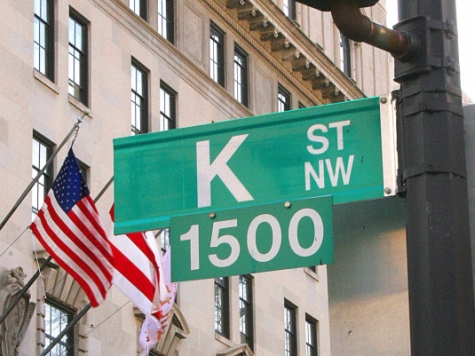The recent political clash over ObamaCare, the government budget and the debt ceiling exposed a widening rift between the Tea Party and the GOP establishment. The fight for power in the Beltway is no longer simply between traditional political parties. The clash is now more complex, pitting the insider establishment dealmakers against those who remain loyal to the interests of their constituents.
The empowerment of individual activists nationwide not only threatens entrenched Republican congressmen, it also jeopardizes the influence of big business and trade associations such as the U.S. Chamber of Commerce.
As a front group for our country’s biggest corporations, the Chamber is an equal opportunity special interest group and a longtime heavyweight in the Beltway establishment. Though the organization predominantly donates to Republicans, it also works with Democrats and unions to support the business community’s agenda.
The friction between small-government conservatives and the Chamber escalated when the trade group aligned with President Obama and the Democrats to pressure Republicans to capitulate on the recent budget and debt ceiling stalemate. But this skirmish was the just the most recent in a longer fundamental conflict regarding the proper relationship between government and the business community.
Contrary to the talking points of the progressive left, big business loves big government and complicated market regulations because huge corporations can afford the lobbyists necessary to give them a competitive advantage. While Tea Party activists believe in true free-market capitalism, the Chamber pursues a cozy relationship with government that is at best conflicting and at worst hypocritical with regard to its position on our national debt.
While the Chamber supports long-term solutions to our deficit with an emphasis on entitlement reforms, it has a history of advocating direct government support for businesses. In addition to advocating for government bailouts to save its members from failure, the trade group also lobbies for policies to inject taxpayer money into member companies.
The Chamber has supported TARP, the auto company bailouts and President Obama’s $787 billion stimulus plan. They were also particularly excited about the green-energy spending in the stimulus plan. In a letter to the Senate, the Chamber pushed for a stimulus bill “to increase spending on items related to energy efficiency, the electricity grid, climate change, and technology provisions provided by the Energy Policy Act of 2005 and Energy Independence and Security Act of 2007.”
The organization also wanted the stimulus plan to expand funding for all renewable-energy programs, and sought a $50-billion loan guarantee to back clean-energy projects. The energy legislation signed by President George W. Bush in 2005 and 2007 initiated government support for clean energy via loan guarantees and tax credits, including for biofuels and electric cars.
As we know, the stimulus failed to deliver on promises for job creation and substantial economic recovery, but it did yield financial benefits for the Chamber’s membership. The stimulus plan transferred hundreds of millions of dollars from taxpayers to the Chamber’s corporate members, including General Electric, Honeywell and Duke Energy.
It’s no wonder the rise of the grassroots freedom movement is causing anxiety in corporate boardrooms and at the Chamber – they don’t want to be cut off from the government gravy train.
It’s been reported that the Chamber, along with other business trade groups, are considering political action to defend their incumbent GOP business partners from principled primary challengers, and also to recruit candidates to oust conservative members of Congress in 2014.
The Chamber fears principled politicians like Sen. Ted Cruz (R-TX), who are determined to shake up Washington’s status quo and be a voice for the grassroots activists focused on reigning in spending and promoting equal treatment under the law.
The fight ahead for small-government conservatives can’t be won simply by defeating progressive Democrats. To beat the special interests in Washington and advance responsible economic policy, the freedom movement will have to take on the entrenched Republican establishment and bipartisan special interest groups like the U.S. Chamber of Commerce as well.

COMMENTS
Please let us know if you're having issues with commenting.